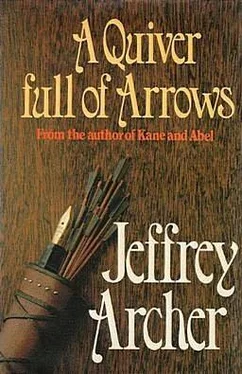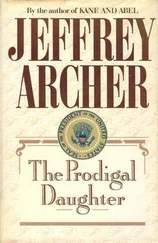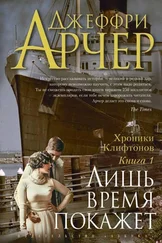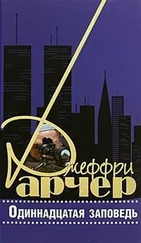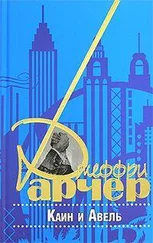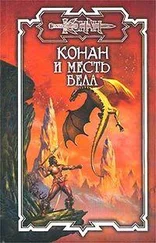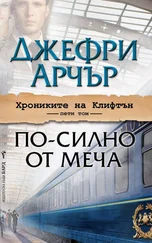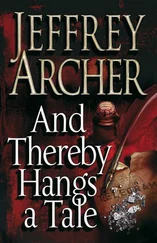Occasionally the adversaries would seek his adjudication as to who was ahead of whom, and so confident was each of being the favored pupil that one would always ask in the other’s hearing. Jakes was far too canny to be drawn; instead he would remind them that the examiners would be the final arbiters. So they began their own subterfuge by referring to each other, just in earshot, as “that silly woman,” and “that arrogant man.” By the end of their second year they were almost unable to remain in the same room together.
In the long vacation William took a passing interest in Al Jolson and a girl called Ruby while Philippa flirted with the Charleston and a young naval lieutenant from Dartmouth. But when term started in earnest these interludes were never admitted and soon forgotten.
At the beginning of their third year they both, on Simon Jakes’ advice, entered for the Charles Oldham Shakespeare prize along with every other student in the year who was considered likely to gain a First. The Charles Oldham was awarded for an essay on a set aspect of Shakespeare’s work, and Philippa and William both realized that this would be the only time in their academic lives that they would be tested against each other in closed competition. Surreptitiously, they worked their separate ways through the entire Shakespearean canon, from Henry VI to Henry VIII, and kept Jakes well over his appointed tutorial hours, demanding more and more refined discussion of more and more obscure points.
The chosen theme for the prize essay that year was “Satire in Shakespeare.” Troilus and Cressida clearly called for the most attention, but both found there were nuances in virtually every one of the bard’s thirty-seven plays. “Not to mention a gross of sonnets,” wrote Philippa home to her father in a rare moment of self-doubt. As the year drew to a close it became obvious to all concerned that either William or Philippa had to win the prize while the other would undoubtedly come in second. Nevertheless no one was willing to venture an opinion as to who the victor would be. The New College porter, an expert in these matters, opening his usual book for the Charles Oldham, made them both evens, ten to one the rest of the field.
Before the prize essay submission date was due, they both had to sit their final degree examinations. Philippa and William confronted the examination papers every morning and afternoon for two weeks with an appetite that bordered on the vulgar. It came as no surprise to anyone that they both achieved first class degrees in the final honors school. Rumor spread around the University that the two rivals had been awarded alphas in every one of their nine papers.
“I am willing to believe that is the case,” Philippa told William. “But I feel I must point out to you that there is a considerable difference between an alpha plus and an alpha minus.”
“I couldn’t agree with you more, ” said William. “And when you discover who has won the Charles Oldham, you will know who was awarded less. ”
With only three weeks left before the prize essay had to be handed in they both worked twelve hours a day, falling asleep over open textbooks, dreaming that the other was still beavering away. When the appointed hour came they met in the marble-floored entrance hall of the Examination Schools, somber in subfusc.
“Good morning, William, I do hope your efforts will manage to secure a place in the first six.”
“Thank you, Philippa. If they don’t I shall look for the names C. S. Lewis, Nichol Smith, Nevill Coghill, Edmund Blunden, R. W. Chambers and H. W. Garrard ahead of me. There’s certainly no one else in the field to worry about.”
“I am only pleased,” said Philippa, as if she had not heard his reply, “that you were not seated next to me when I wrote my essay, thus ensuring for the first time in three years that you weren’t able to crib from my notes.”
“The only item I have ever cribbed from you, Philippa, was the Oxford to London timetable, and that I discovered later to be out-of-date, which was in keeping with the rest of your efforts.”
They both handed in their 25,000-word essays to the collector’s office in the Examination Schools and left without a further word, returning to their respective colleges impatiently to await the result.
William tried to relax the weekend after submitting his essay, and for the first time in three years he played some tennis, against a girl from St. Anne’s, failing to win a game, let alone a set. He nearly sank when he went swimming, and actually did so when punting. He was only relieved that Philippa had not been witness to any of his feeble physical efforts.
On Monday night after a resplendent dinner with the Master of Merton, he decided to take a walk along the banks of the Cherwell to clear his head before going to bed. The May evening was still light as he made his way down through the narrow confines of Merton Wall, across the meadows to the banks of the Cherwell. As he strolled along the winding path, he thought he spied his rival ahead of him under a tree reading. He considered turning back but decided she might already have spotted him, so he kept on walking.
He had not seen Philippa for three days although she had rarely been out of his thoughts: once he had won the Charles Oldham, the silly woman would have to climb down from that high horse of hers. He smiled at the thought and decided to walk nonchalantly past her. As he drew nearer, he lifted his eyes from the path in front of him to steal a quick glance in her direction, and could feel himself reddening in anticipation of her inevitable well-timed insult. Nothing happened, so he looked more carefully, only to discover on closer inspection that she was not reading: her head was bowed in her hands and she appeared to be sobbing quietly. He slowed his progress to observe, not the formidable rival who had for three years dogged his every step, but a forlorn and lonely creature who looked somewhat helpless.
William’s first reaction was to think that the winner of the prize essay competition had been leaked to her and that he had indeed achieved his victory. On reflection, he realized that could not be the case: the examiners would only have received the essays that morning and since all the assessors read each submission the results could not possibly be forthcoming until at least the end of the week. Philippa did not look up when he reached her side — he was even unsure whether she was aware of his presence. As he stopped to gaze at his adversary William could not help noticing how her long red hair curled just as it touched the shoulder. He sat down beside her but still she did not stir.
“What’s the matter?” he asked. “Is there anything I can do?”
She raised her head, revealing a face flushed from crying.
“No, nothing, William, except leave me alone. You deprive me of solitude without affording me company.”
William was pleased that he immediately recognized the little literary allusion. “What’s the matter, Madame de Sévigné?” he asked, more out of curiosity than concern, torn between sympathy and glee at catching her with her guard down.
It seemed a long time before she replied.
“My father died this morning,” she said finally, as if speaking to herself.
It struck William as strange that after three years of seeing Philippa almost every day he knew nothing about her home life.
“And your mother?” he said.
“She died when I was three. I don’t even remember her. My father is—” She paused. “Was a parish priest and brought me up, sacrificing everything he had to get me to Oxford, even the family silver. I wanted so much to win the Charles Oldham for him.”
William put his arm tentatively on Philippa’s shoulder.
Читать дальше
